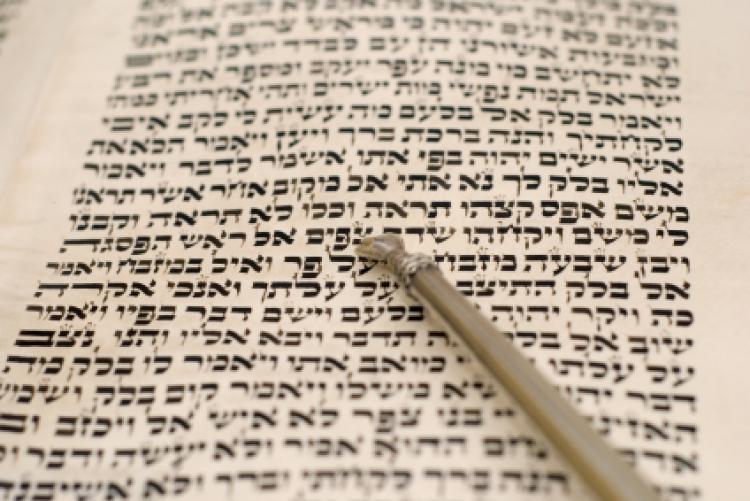
Do You Get a Black Moon?
What is a Black Moon, and why does it happen in December?
Many Australian Jewish communities observe Tisha B’Av on the ninth day of the month of Av in the Jewish calendar. It is a day of mourning to remember events such as the destruction of the First Temple and Second Temple in Jerusalem. When Tisha B’Av falls on Shabbat (Saturday), it is moved to Sunday, 10th of Av.
Tisha B'Av is not a public holiday. It falls on Sunday, August 3, 2025 and most businesses follow regular Sunday opening hours in Australia.

Torah study is forbidden on Tisha B'Av except for sad texts such as the Book of Lamentations.
©iStockphoto.com/Howard Sandler
Tisha B’Av is a sad day for many Jewish Australians. It reminds them of the oppression and violence that caused suffering among Jewish people throughout history. There are five activities that are forbidden on Tisha B’Av:
Fasting is an important part of Tisha B’Av. Fasting starts at sunset on the night before of Tisha B’Av and ends when night falls. Those who are sick are usually exempt from fasting during Tisha B’Av. Some Jewish Australians do not fast if Tisha B’Av is a Shabbat (resting day). They fast on the next day instead.
Many traditional mourning practices are observed, such as prayers and refraining from smiling, laughing, or wearing new clothing. Torah study is generally thought to bring joy. Therefore those who observe Tisha B’Av are allowed to study only certain portions of the Torah on Tisha B'Av.
The book of Lamentations is read during the evening services at many synagogues. A single light is lit at the pulpit of the synagogue and the parochet (curtain) is removed from the ark during an evening service on Tisha B’Av. However, it is customary to extinguish all synagogue lights and to only light one small lamp in many Sephardi Jewish communities. The ark (cabinet where the Torah is kept) is draped in black.
Tisha B’Av is not a public holiday in Australia. However, some Jewish organizations may be closed or have restricted opening hours.
Tisha B’Av, also known as the Jewish Fast of Av, is a period of fasting, lamentation and prayer to remember the destruction of the First and Second Temples of Jerusalem. The Jewish people still continued the fast day even after they rebuilt the First Temple after the Babylonians destroyed it in 586 BCE. The Romans destroyed the Second Temple by burning it in 70 CE and this marked the start of a long exile period for Jewish people. These are two of five sad events or calamities that occurred on the ninth day of the month of Av. The other three were when:
Tisha B’Av is a sad day that observes other major disasters and tragedies that Jewish people experienced throughout history, including the expulsion of the Jewish people from England in 1290 and from Spain in 1492, as well as the mass deportation of Jewish people from the Warsaw Ghetto during World War II.
Tisha B’Av begins at sunset on the previous day and lasts for more than 24 hours. It is the culmination of a three-week period of mourning. Weddings and other parties are generally not permitted and people refrain from cutting their hair during this period. It is customary to refrain from activities such as eating meat or drinking wine (except on the Shabbat) from the first to the ninth day of Av.
In the Jewish diaspora—Jewish communities outside of Israel—an extra day is usually added to religious observances, with the exception of Yom Kippur, which lasts only one day worldwide, and Rosh Hashana, which is celebrated over two days in both Israel and the diaspora.
This custom has its roots in ancient times when the beginning of the months in the Jewish calendar still relied on the sighting of the crescent Moon following a New Moon.
The beginning of a new month was determined by the Sanhedrin, the supreme court of ancient Israel in Jerusalem. Once the date was published, messengers were dispatched to spread the news among Jews living abroad. Since this process took some time, it was decreed that Jews outside of ancient Israel were to observe every holiday for 2 days to make sure that the rules and customs applicable to each holiday were observed on the proper date. This rule is still observed today.
Note: Jewish holidays begin at sundown the day before the date specified for the holiday.
| Year | Weekday | Date | Name | Holiday Type |
|---|---|---|---|---|
| 2019 | Sun | Aug 11 | Tisha B'Av | Jewish holiday |
| 2020 | Thu | Jul 30 | Tisha B'Av | Jewish holiday |
| 2021 | Sun | Jul 18 | Tisha B'Av | Jewish holiday |
| 2022 | Sun | Aug 7 | Tisha B'Av | Jewish holiday |
| 2023 | Thu | Jul 27 | Tisha B'Av | Jewish holiday |
| 2024 | Tue | Aug 13 | Tisha B'Av | Jewish holiday |
| 2025 | Sun | Aug 3 | Tisha B'Av | Jewish holiday |
| 2026 | Thu | Jul 23 | Tisha B'Av | Jewish holiday |
| 2027 | Thu | Aug 12 | Tisha B'Av | Jewish holiday |
| 2028 | Tue | Aug 1 | Tisha B'Av | Jewish holiday |
| 2029 | Sun | Jul 22 | Tisha B'Av | Jewish holiday |
While we diligently research and update our holiday dates, some of the information in the table above may be preliminary. If you find an error, please let us know.

What is a Black Moon, and why does it happen in December?

When will the next comet be visible?

Why do mornings keep getting darker after the December solstice?

December 26 is the Boxing Day holiday celebrated in Australia.